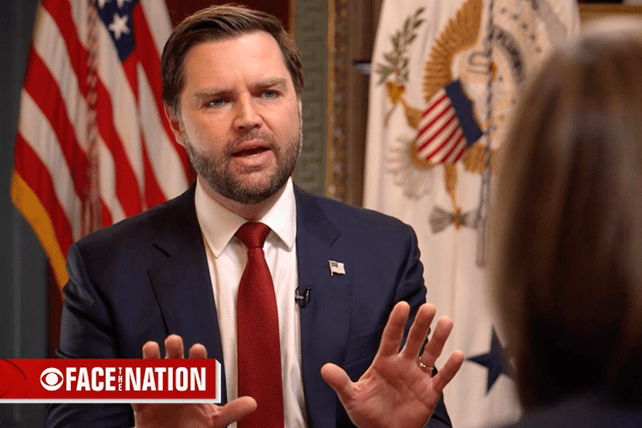Until recently, Catholic bishops’ emphasis on their anti-abortion stance has often made Republican politicians natural allies, and even as the abortion battle has moved to the states with the end of Roe v. Wade in 2022, there is plenty of overlap in the two groups’ positions: Among the policy asks the social ministry advocates brought to lawmakers were an end to taxpayer subsidies for Planned Parenthood and support for taxpayer funding for private school tuition.
But with legislation gaining in Congress to increase deportation and immigrant detention in addition to Republicans’ backing of the Trump administration’s pause in foreign aid, the Catholic advocates faced harder conversations.
“ It’s scary to think about our country not providing that kind of aid,” said Andrew Musgrave, the director of Catholic social action for the Archdiocese of Cincinnati, of the White House’s targeting foreign public health assistance.
In speaking with Sen. Jon Husted and a staffer for Sen. Bernie Moreno, Musgrave said, both were attentive but made few policy commitments, other than signaling Moreno’s support for the child tax credit.
To see the Catholic vice president from Ohio attack refugee resettlement was “discouraging,” Musgrave said. “We certainly held hopes and still do hold hopes that he’ll be a good ally for us,” the member of both the Cincinnati archdiocesan immigration task force and the Immigrant Dignity Coalition said.
“We have decades of evidence that the U.S. Catholic Church has been a passionate defender of the rights of all people,” Musgrave said of Vance’s comments.
The bishops too have tried to soothe the recent antipathy by pointing to history. “Faithful to the teaching of Jesus Christ, the Catholic Church has a long history of serving refugees,” the statement read. “In 1980, the bishops of the United States began partnering with the federal government to carry out this service when Congress created the U.S. Refugee Admissions Program (USRAP),” which the administration recently halted.
They reminded the administration that refugee services are a collaboration between faith-based groups and the government. The statement explained, “Every person resettled through USRAP is vetted and approved for the program by the federal government while outside of the United States.” Nor, they pointed out, does the U.S. fully fund the work. “In our agreements with the government, the USCCB receives funds to do this work; however, these funds are not sufficient to cover the entire cost of these programs,” the bishops said.
The friction was not entirely unanticipated. The bishops’ own annual report on religious liberty, released days before the inauguration, identified the targeting of the church’s immigration services as a top area of concern. “Beyond legal threats to religious liberty, the physical safety of staff, volunteers and clients of Catholic ministries and institutions that serve newcomers may be jeopardized by extremists motivated by false and misleading claims made against the Church’s ministries,” the report committee wrote.
They also highlighted Vance and other Catholics’ role in the Trump administration as having the potential to “be a fresh source of partisan division among Catholics.”
Still, the vice president’s comments, which appeared to arise from arguments pushed more recently by people on Catholicism’s extreme right, came as a shock, but Musgrave said that the bishops’ overall “moderate” response reflects their understanding that advocacy is a “marathon,” not a “sprint.”
“ There’s a need to have that long view and know that a person who might be standing in a position contrary to yours today could be an ally in something else, so you don’t want to jeopardize that relationship for fear of what you might lose down the line,” he said.

